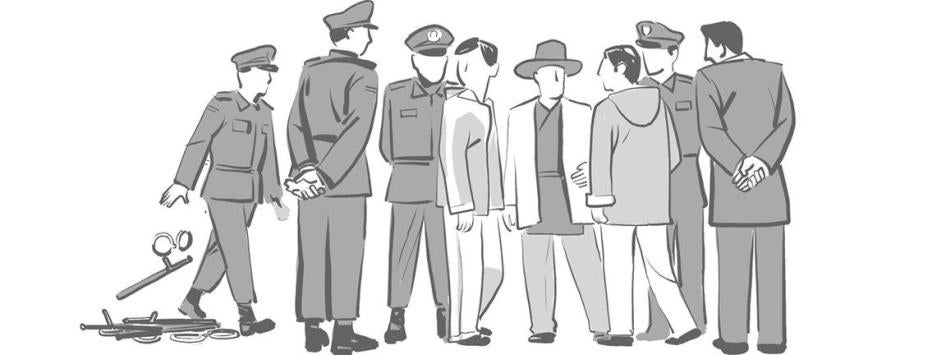(New York) – Chinese authorities are increasingly using opaque policy terms in official media to tighten repression in Tibet, Human Rights Watch said in an illustrated glossary released today.
Tibet: A Glossary of Repression explains and illustrates a dozen terms that appear benign or even positive but are in fact used to ensure total compliance and surveillance by officials of ordinary Tibetan people. The glossary includes terms that relate to political and social control, such as “comprehensive rectification,” “no cracks, no shadows, no gaps left,” and “every village a fortress, everyone a watchman.”
“Orwell himself would be hard pressed to invent a better vocabulary of totalitarian management,” said Sophie Richardson, China director at Human Rights Watch. “But ultimately the message of the Chinese authorities’ terms for Tibetans is clear: political nonconformity will be punished, severely.”
These terms are used – and frequently repeated – not only to persuade populations inside and outside Tibet of the correctness of the Chinese Communist Party’s rule and its policies, but also to deter criticisms of the Party and any challenge to its rule. These terms – few of which are explained in a manner comprehensible to the general public – reflect a profoundly repressive approach to governance in Tibet.
In Tibetan areas within China, and particularly in the Tibet Autonomous Region (TAR), officials have long adhered to the “stability maintenance” policy: a range of policing and administrative systems aimed at preventing, controlling, or punishing social dissent and social disorder used across China – as one way to eradicate support for the Dalai Lama. But when a new wave of protests in support of the Dalai Lama broke out across the Tibetan plateau in spring 2008, Party leaders commissioned researchers to develop new methods to prevent future unrest.
This led to the introduction, from 2011 onward, of new administrative and security mechanisms in the TAR, including permanent teams of cadres installed as managers in every monastery and religious institution, teams of cadres deployed for three years in every village to organize security operations and political education, and “grid system” offices set up to monitor and manage each block or group of homes in every town and many villages.
“Understanding terms like ‘social rectification’ makes clear Chinese authorities’ intentions in Tibet: that all life and daily behavior will be under surveillance, and any problematic conduct will be identified and swiftly punished,” Richardson said.

![A photo showing children from primary schools in Lhasa, the capital of Tibet, “speaking [their] hearts to Grandpa [President] Xi.”](/sites/default/files/styles/square/public/multimedia_images_2017/201706asia_china_tibet_hearts.jpg?itok=zQ8UUFZv)






